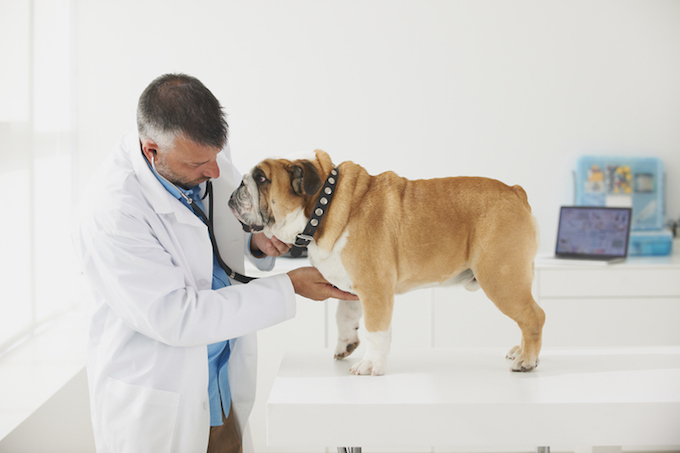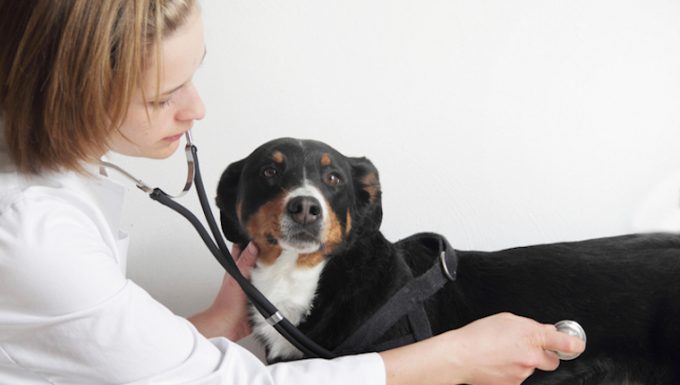Fluid in the chest in dogs results in a dog being unable to properly inflate their chest. This is because of a build up of fluid.
Additionally, the condition is often caused by another underlying condition.
Technically, the condition is also known as chylothorax.
Also, note that the condition is different to pleural effusion, even though both produce fluid in the chest.
If you see the signs of fluid in the chest in your dog, then get to a veterinarian for a proper diagnosis and treatment.
Here’s what you should know about the symptoms, causes, and treatments for the condition.
Symptoms of Fluid in the Chest in Dogs
The condition produces a wide range of symptoms. For example, some of the most common symptoms include:
- Breathing too quickly
- Coughing
- Anorexia
- Skin turning blue
- Gums turning pale
- No interest in exercising
- Irregular heartbeat
Causes of Fluid in the Chest in Dogs

The cause of the condition is often unknown. However, some of the common suspected causes include:
- Fungal infection
- Heart disease
- Blood clots
- Tumors in the chest
- Heartworm
Additionally, some dogs seem to be born with the condition.
Treatments for Fluid in the Chest in Dogs
Firstly, your vet will ask about your dog’s symptoms. Secondly, your vet will carry out a full physical examination.
Thirdly, your vet will take some fluid from your dog’s chest. Additionally, ultrasounds and X-rays can also be used to examine the chest.
Ultimately, treatment will target the precise underlying cause for the condition. Sometimes, this can involve using chest tubes to reduce the pressure on the area. Surgery can also be needed.
While recovering at home it is important to provide your dog with a quiet and calm environment. Also, keep up regular visits with your vet to make sure the condition doesn’t return.
Have you ever cared for a dog who suffered from this condition? How did your vet help your dog recover? Let us know in the comments section below.








